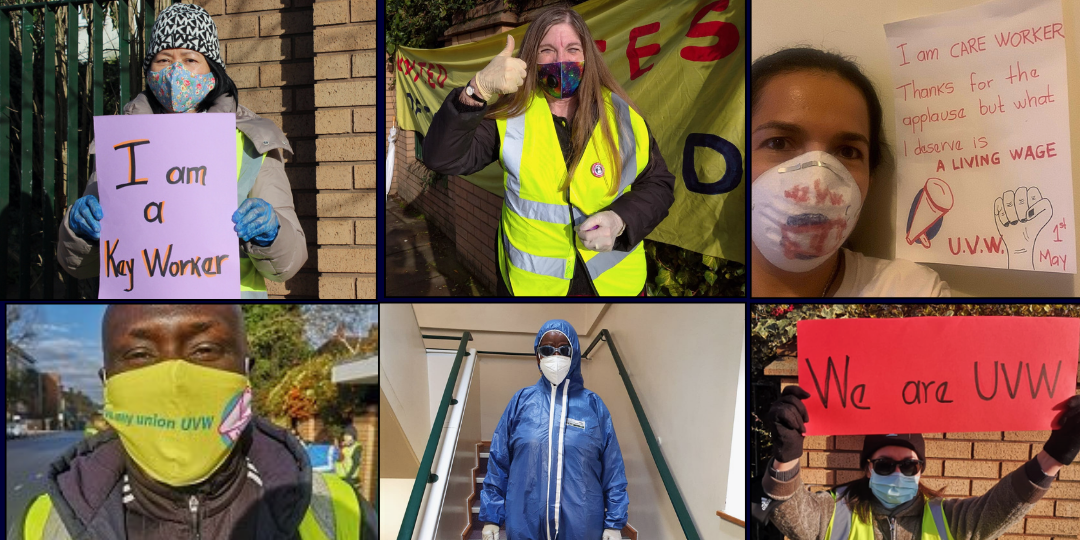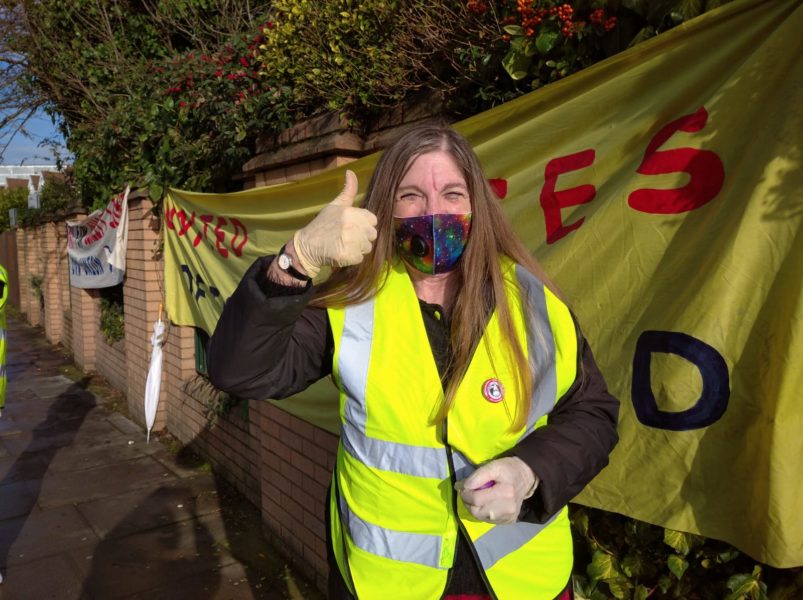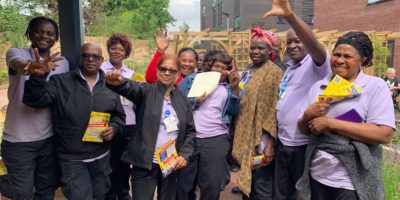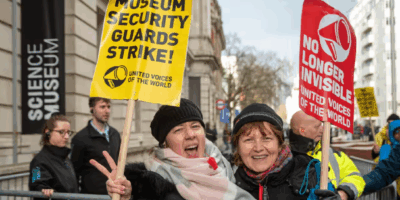Search

08.10.2024 / News / Worker's Story / Covid-19 / SAGE
“It’s important that this inquiry leads to a revaluation of caregivers’ work; that it’s seen as just as important as that of doctors or nurses or others who were on the front lines during the pandemic(…) Our value was zero in the eyes of others because care workers are among the least heard in society. Nurses, doctors… They have a voice. And yet, we are the most important people to those we care for.” Julia Veros Gonzalez, care worker and UVW member.
UVW members are carers, cleaners, security guards, porters, caterers, and healthcare workers. At great risk to their health – often without personal protective equipment (PPE) needed to keep them safe – they worked on the frontlines to keep London and the country safe, cared for, clean and fed during the pandemic. Some paid the ultimate price. In the first months of the pandemic, 83% of ethnic minority healthcare workers who died from Covid-19 were migrants and 53% of the total UK healthcare workers who died were migrants.
Those who were there are now telling their side of the story, a story of poverty, discrimination, fear and of having to make life threatening choices. The Frontline Migrant Health Workers’ Group (FMHWG), which includes United Voices of the World union (UVW), Independent Workers Union of Great Britain and charity Kalungan Filipino Consortium, representing migrant and low-paid healthcare workers, will provide oral evidence at the Covid-19 Inquiry’s Module 3 hearings on 9-10 October.
UVW member and migrant care worker Julia Veros González has given evidence on various occasions. As the hearings approached, she talked of the fear of getting infected at work during the pandemic and the feeling of impotence amid the reigning chaos.
“The Covid-19 experience was catastrophic. No one knew what was needed, and there was a lot of disorganisation, especially at the beginning. There were few gloves and masks for us to do our jobs, and as a result, many got infected with the virus. In general, there was little respect from society for the work of care workers. While hospitals and other healthcare facilities had strict systems in place to prevent infections, in the caregiving sector, particularly in nursing homes (at least in my experience), there seemed to be few rules or they were inconsistently applied, leaving caregivers unprotected. You felt powerless, and every day you left work thinking, “Did I catch it?” I felt disregarded, our value was zero in the eyes of others because care workers are among the least heard in society. Nurses, doctors… They have a voice. And yet, we are the most important people to those we care for.”
“It’s important that this inquiry leads to a revaluation of caregivers’ work; that it’s seen as just as important as that of doctors or nurses or others who were on the front lines during the pandemic. It was our place to be there because offices closed, and their workers went home, but we had to be there. For example, you would put on gloves, but they would tear while you were washing someone – and then what? Or residents with Alzheimer’s or other mental illnesses would grab you and pull off your mask – what do you do in that situation? You were at much higher risk than even a nurse or a doctor because there weren’t the same protocols and measures, yet you had even more proximity – the patient is inches from your face when you’re washing them, feeding them… And I really suffered a lot because of this.”

Our members—low-paid, precarious migrant workers, primarily from Black, brown, and other ethnic minorities—were severely impacted by the pandemic. These communities have been, and continue to be, at the heart of an outsourcing system that has privatised facility services in the NHS, reinforcing institutional inequality and structural racism within the public sector.
Despite their contributions and sacrifices many of these workers are outsourced, seen as second class, treated as second class and given second class terms and conditions. This is unacceptable and we must ensure that all workers, regardless of their status, have access to the protection and pay they need and are employed directly by the places where they work – and not outsourced. Regardless of the Covid-19 Inquiry outcome, UVW will continue to dismantle structural racism, one strike at a time.
FMHWG’s evidence to the inquiry is a crucial opportunity to hear first-hand accounts from those at the frontlines of the pandemic, including migrant and low-paid healthcare workers, who were disproportionately affected by it. FMHWG is represented by the Public Interest Law Centre.
You can follow the livestream on 9 & 10 October from 10am BST here: https://www.youtube.com/@UKCovid-19Inquiry

25.06.2025 / Justice for Cleaners / St Helier and Epsom

12.06.2025 / Natural History, Science and V&A Museums